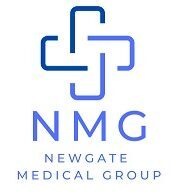Patient Information Leaflet
What is Cholesterol?
Cholesterol is a fatty substance that is made naturally in the body and needed for lots of normal functions in the body. However, unhealthy levels are a risk factor for disease. The higher the levels in your blood, the higher your risk of blood vessel changes which can lead to strokes, heart attacks, circulation problems and vascular dementia.
QRISK
Looking at different risk factors we can calculate the approximate risk of you developing cardiovascular disease within the next 10 years – using the QRISK calculator.
Cholesterol is one factor which contributes to this risk and is important as it can be corrected/treated. Other risk factors include:
- Uncontrolled high blood pressure (which is treatable/correctable)
- Smoking (which is modifiable)
- Obesity or being overweight (which is modifiable)
- Age, gender, family history / genetics (which are non-modifiable)
YOUR RISK
You are receiving this leaflet because you have been calculated to have a % risk of over 10%.
This means over the next 10 years your chance of having a cardiovascular incident is more than 1 in 10
Current NHS guidance advises all patients with risk scores of 10% or more to make lifestyle changes and be offered a cholesterol-lowering medication called a statin.
WHAT CAN YOU DO TO LOWER YOUR RISK?
Whatever your risk scores, it is always sensible to try and lower your risk. You will not be able to change things like your age, your ethnic background or your family history, but there are always steps you can take to lower your risk in other ways. These include:
- Stop smoking if you smoke. (And probably don’t vape)
- Eat a healthy diet. – Limit red meats, fatty processed food (saturates), increase vegetables and fish (Limit foods with red traffic light food labelling under fats and saturates)
- Keep your weight and waist in check
- Exercise regularly – 30-40 minutes of exercise which makes you breathless or sweaty 3-7 times a week, having an active job or going for a leisurely walk doesn’t count!
- Cut back on alcohol consumption
WHAT ARE STATINS?
These are a group of medicines that lower cholesterol and help to reduce the risk of heart attacks and strokes. Statins need to be taken regularly every day long term to be effective. They are a once a day tablet taken with or without food.
What Are the Benefits of a Statin? An Example.
If someone has a QRISK of 20% and takes a statin regularly, their risk of cardiovascular disease over the next 10 years will reduce from 20% to 13%.
What Are the Side Effects of a Statin?
Like all medicines, statins can cause side effects. They are generally well tolerated. If one statin does not suit you, you could try another one which may suit you better.
Statins can interact with some medications, grapefruit juice and are not suitable for some people with liver disease, pregnant or breast-feeding women.
Muscle symptoms
Statins can cause muscle pain, but many people get muscle pain from time to time whether they take a statin or not and is not usually a cause for concern. If this causes trouble for you please get in touch with the Pharmacist or GP.
Other Side Effects
Your risk of developing diabetes is increased slightly by taking a statin. The risk for you will depend on how likely you are to get type 2 diabetes anyway.
Other side effects that can occur include; headaches, constipation/diarrhoea, sleep disturbance and nausea but these tend to subside soon after starting treatment. Other less common problems are listed in the information leaflet that comes with the medicine.
NEXT STEPS
SO: Would you like to start a Statin?
- If after reading this you want to start on a statin please contact our team and we can prescribe and issue your medicine and arrange a follow-up
- If you would like more information, please contact us to make a routine telephone appointment with the Pharmacy Team
- If you decide that after reading this leaflet, you do not wish to take a statin, then you do not need to contact us. After a period of four weeks, we will make an entry on your medical record “Statin declined”. Meanwhile, please try and stay healthy by making the lifestyle changes indicated above.
You will need a routine blood test 3 months and 12 months after starting the statin tablets, and a yearly review thereafter.
FURTHER INFORMATION
https://www.nice.org.uk/guidance/cg181/resources/patient-decision-aid-pdf-243780159
British Heart Foundation, Tel: 0300 330 3311 www.bhf.org.uk
HEART UK – The Cholesterol Charity, Tel: 0845 450 5988 http://heartuk.org.uk
The Stroke Association, Tel: 0303 3033 100 www.stroke.org.uk
South Asian Health Foundation (SAHF), Tel: 020 331 30670 www.sahf.org.uk
